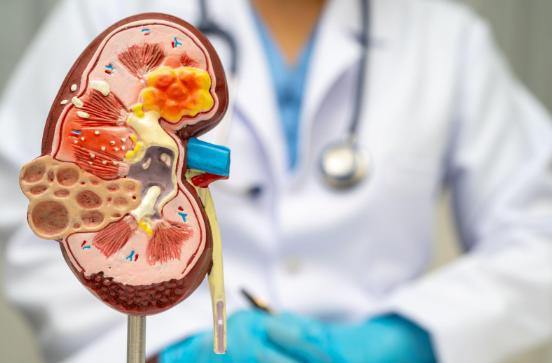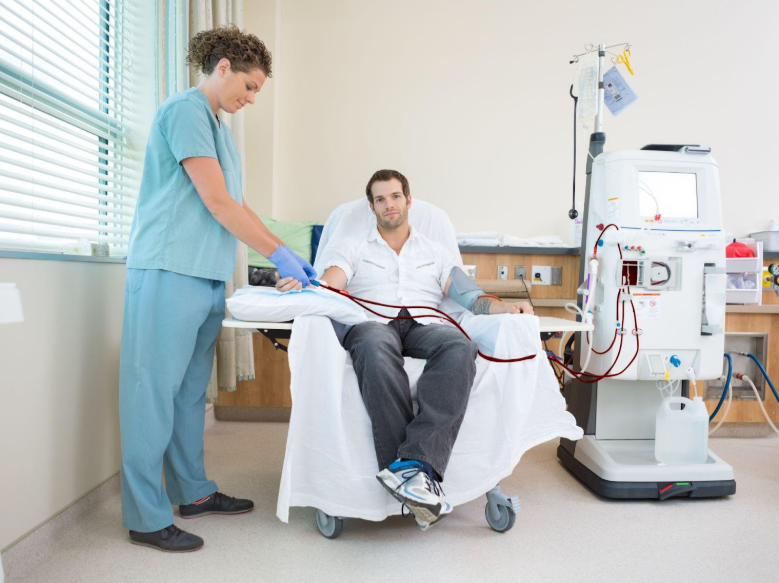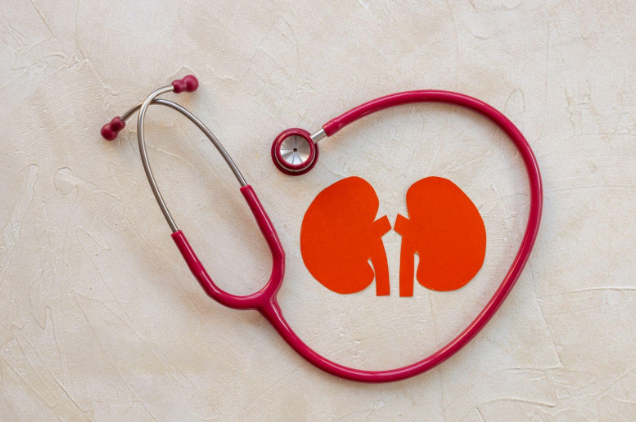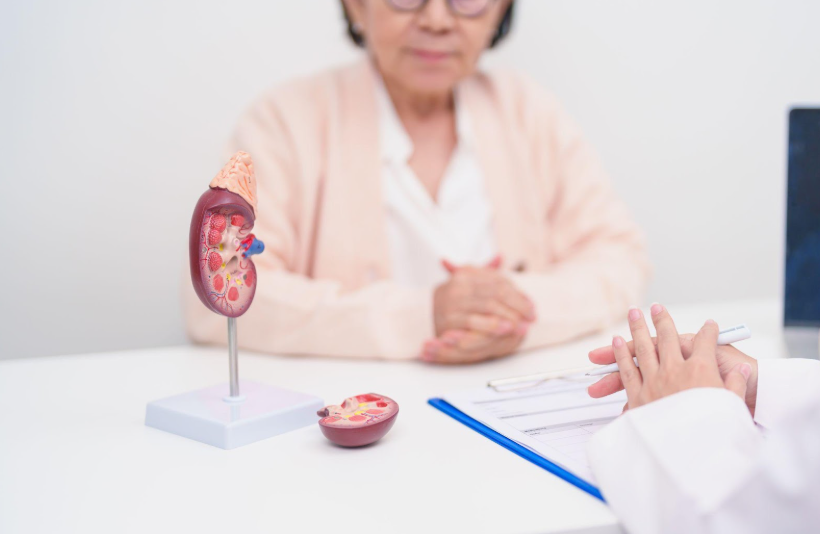Kidney Health 101: How to Protect Your Kidneys and Prevent Chronic Kidney Disease
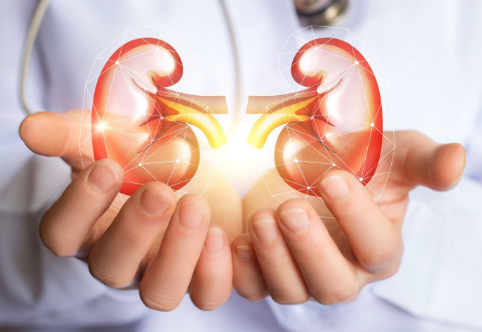
Your kidneys play an important role in keeping your body healthy. They filter waste, regulate fluids, and help maintain a balance of electrolytes. Despite their importance, kidney health often takes a backseat until problems arise. Chronic Kidney Disease (CKD) affects millions globally, often progressing silently until it reaches advanced stages.
The good news is that you can take steps to protect your kidneys and prevent CKD.
The Importance of Kidney Health
The kidneys filter about 50 gallons of blood daily, removing waste products and excess fluids through urine. Additionally, kidneys regulate blood pressure, produce hormones for red blood cell production, and maintain bone health by managing calcium and phosphorus levels.
Poor kidney health can lead to severe complications, including fluid retention, electrolyte imbalances, and a buildup of toxins in the blood. Chronic Kidney Disease occurs when kidney function declines over time, often due to underlying conditions such as diabetes, hypertension, or genetic factors. Early awareness and prevention are key to avoiding irreversible damage.
Causes and Risk Factors for Chronic Kidney Disease
CKD doesn’t develop overnight. It’s usually a result of long-term damage caused by:
- Diabetes: High blood sugar levels can damage the tiny blood vessels in the kidneys, reducing their filtering ability.
- High Blood Pressure: Elevated pressure can strain the kidneys over time, impairing their function.
- Heart Disease: Cardiovascular issues often correlate with kidney problems due to shared risk factors.
- Family History: A genetic predisposition can increase the likelihood of kidney disease.
- Lifestyle Factors: Smoking, excessive alcohol consumption, and obesity contribute to kidney strain and overall poor health.
Tips for Maintaining Healthy Kidneys
To keep your kidneys healthy, try the following:
Staying Hydrated
Drinking enough water supports your kidneys in flushing out waste. Adequate hydration prevents kidney stones and urinary tract infections, both of which can harm kidney function. Aim to drink water consistently throughout the day rather than in large amounts at once. However, individuals with certain conditions, such as kidney failure, may need to limit fluid intake, so consult a healthcare provider for personalized advice.
Eating a Balanced Diet
A kidney-friendly diet focuses on controlling sodium, potassium, and phosphorus intake. Excessive sodium can lead to high blood pressure, while too much potassium or phosphorus can strain the kidneys. Include fresh fruits, vegetables, lean proteins, and whole grains in your meals. Avoid processed foods, as they often contain hidden salts and unhealthy additives.
Managing Chronic Conditions
If you have diabetes or hypertension, controlling these conditions is critical to protecting your kidneys. Regular check-ups, medication adherence, and lifestyle modifications can prevent complications. Monitoring blood sugar levels and keeping blood pressure within a healthy range significantly reduce the risk of CKD.
Limiting Alcohol and Tobacco Use
Alcohol and tobacco use are associated with increased risks of kidney disease. Smoking reduces blood flow to the kidneys, impairing their ability to function properly. Alcohol, when consumed excessively, can lead to dehydration and worsen existing kidney conditions. Reducing or eliminating these habits can have significant health benefits.
Managing Stress
Chronic stress can contribute to high blood pressure and unhealthy lifestyle choices. Practice relaxation techniques like deep breathing, meditation, or spending time in nature. Adequate sleep and maintaining a positive support system also play critical roles in overall well-being.
The Role of Exercise in Kidney Health
Physical activity supports kidney health by improving circulation, reducing blood pressure, and helping maintain a healthy weight. Moderate exercises, such as walking, swimming, or yoga, can be highly beneficial. Consistency is key—aim for at least 30 minutes of exercise most days of the week. However, avoid overexertion, as extreme physical stress can strain the kidneys.
Avoiding Toxins and Harmful Substances
Certain substances can harm your kidneys if consumed in excess or over time. Limit your intake of non-steroidal anti-inflammatory drugs (NSAIDs) like ibuprofen, which can damage kidney tissues when used frequently. Avoid exposure to toxins such as heavy metals or industrial chemicals, and always use medications as prescribed by a healthcare professional.
Recognizing Symptoms of Kidney Problems
Early detection of kidney issues can prevent long-term complications. These symptoms may indicate kidney dysfunction or other health issues:
- Persistent fatigue
- Swelling in the ankles, feet, or hands
- Changes in urination, such as increased frequency or dark-colored urine
- Unexplained shortness of breath
- Nausea or loss of appetite
. Consult a doctor promptly if you notice any of these signs.
Regular Screenings for Kidney Health
Routine medical check-ups are integral for monitoring kidney function. Blood tests, such as the glomerular filtration rate (GFR), assess how well your kidneys are filtering waste. Urine tests can detect protein or blood in the urine, which may indicate kidney damage. Early diagnosis allows for timely interventions and better outcomes.
Treatment Options for Chronic Kidney Disease
If diagnosed with CKD, treatment focuses on slowing the disease’s progression and managing symptoms. Options may include:
- Medications: Drugs to control blood pressure, blood sugar, or cholesterol levels can protect kidney function.
- Dietary Changes: Following a tailored diet plan to limit sodium, protein, and other nutrients can reduce kidney strain.
- Dialysis: In advanced cases, dialysis removes waste and excess fluids from the blood when the kidneys can no longer perform this function.
- Kidney Transplant: A viable option for some patients with end-stage kidney failure, offering improved quality of life.
Take charge of your kidney health today with our expert team at
Metropolitan Kidney Centers. Whether you're seeking preventive advice or managing chronic conditions, we're here to guide you every step of the way.
Contact us today!
